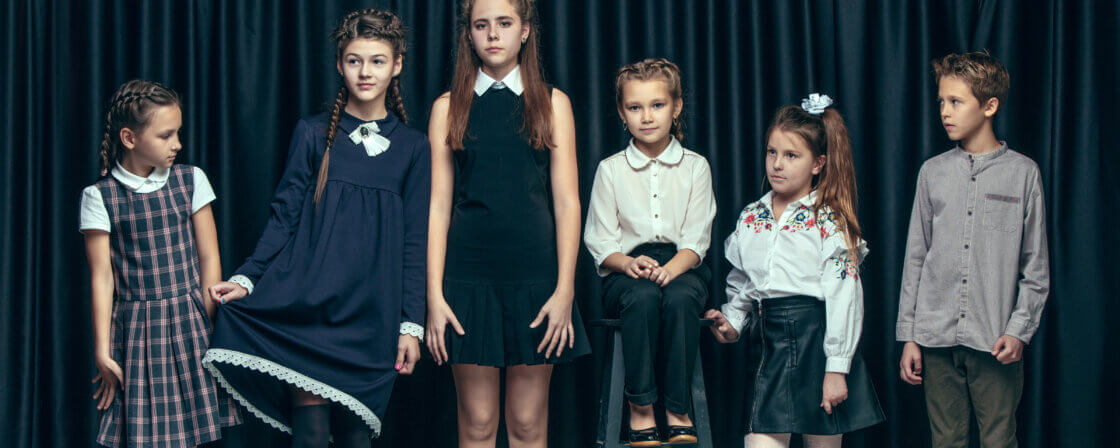What do the laws say about employment of minors?
Legislation in the Czech Republic lays down clear rules that protect children and adolescents from physical and mental overload, ensure their healthy development and respect the need for education. The main rules regulate:
- Labour Code – defines the conditions of employment of minors and children.
- Employment Act – addresses the authorisation of work for children under 15 years of age.
- Public Health Protection Act – regulates the conditions of work in terms of safety and health.
The Labour Code states that children under the age of 15 can only perform work under strictly defined conditions, while minors from the age of 15 onwards have broader possibilities, but still with certain restrictions. A juvenile worker is one who is over 15 years of age, has completed his/her schooling and is under 18 years of age.
Are you solving a similar problem?
Need help with your employment contract?
If you need to prepare an employment contract or just check it? Are you unsure of the exact terms and conditions of employment for a person under the age of 18? Contact us and we will be happy to help you with everything.
I want to help
- When you order, you know what you will get and how much it will cost.
- We handle everything online or in person at one of our 6 offices.
- We handle 8 out of 10 requests within 2 working days.
- We have specialists for every field of law.
What obligations and restrictions does an employer of minors have?
The employer is obliged to draw up an employment contract with the new person at the start of the employment relationship, ensure safe working conditions, provide a health assessment and keep records.
- Employment contract: The employer is obliged to draw up an employment contract with the employee.
- Health assessment: In the medical examination, the doctor assesses whether the work activity is appropriate for the child’s age and does not cause a health risk.
- Compliance with working conditions: The employer must ensure that working conditions comply with the law and that the work does not endanger the health of children.
- Record-keeping: The employer must keep a record of the children who work for them, including their name, date of birth and the type of work performed.
The employer must also inform and give reasonable health and safety instructions to minors. H&S does not avoid employees under the age of 18.
With an employee under 18 years of age, the employer may not enter into a liability agreement for entrusted valuables and a liability agreement for loss of entrusted valuables. It follows that children cannot work, for example, at the cash desk.
An employer must give a work break of at least 30 minutes to a minor after a maximum of 4.5 hours of continuous work.
What are the work options for children under 15?
A minor can start a “classic” part-time job from the age of 15. However, there are some exceptions and jobs that can be performed by children under the age of 15. These are mainly cultural, artistic, sporting and advertising activities. This means that such a child can, for example, act in a theatre performance or take fashion photos for an advertising leaflet for a certain amount of money.
Such work activities must be age-appropriate, not dangerous, not interfere with education or school attendance and participation in educational programmes, and not be detrimental to health, physical, mental, moral or social development.
These work activities also require a permit from the Labour Office, issued by one of its regional offices. This work permit is valid for a maximum of 12 consecutive months. The written consent of the child’s parents is also required for this work.
Although children under the age of 14 still fall into the category of ‘children under 15’, there are opportunities to engage in light work that does not interfere with their schooling. Typical activities include distributing advertising leaflets, helping out in the house or garden, or volunteering in non-profit organisations. All these activities must be approved by the relevant authority and meet the requirements of the law.
What does this look like in practice? Tereza (13 years old) is performing in a play by a local theatre company. The theatre had to apply to the labour office for permission for her to participate, provide a medical examination and comply with restrictions on the length of rehearsals and performances.
In some countries, children still play an important role in the family business. In Italy, for example, it is common for children to help from an early age in the production of traditional cheeses or pasta, which is considered part of the cultural heritage rather than a job.
What about part-time jobs from the age of 15?
If a child aged 15 to 18 wants to start working, he or she must have completed school. Even part-time jobs from the age of 15 have certain restrictions. For example, children over the age of 15 can replenish goods in shops, help out in cafés and restaurants, clean, help out at cultural and sporting events or pick fruit and vegetables on farms.
At this age, minors can already enter into a work contract or an agreement to carry out work independently without the consent of a legal guardian. Again, the employer must provide an initial medical examination.
Employers may only give children aged 15 and over work that is appropriate to their physical and mental development and must provide them with special care at work.
Tip for article
Tip: Do you work shifts and your employer keeps switching them? Find out what shift changes the law allows. He can’t change them at will.
What are the restrictions on work from the age of 15?
However, work for children aged 15 to 18 must not exceed 40 hoursper week, the daily shift must not be longer than 8 hours, and children must not work at all at night (22:00-6:00). Similarly, minors may not work overtime.
There is one exception for night shifts: employees over 16 years of age may perform night work not exceeding 1 hour. The night work must also be directly related to work on the day shift schedule. If necessary for their protection, such night work must be supervised by an employee over 18 years of age.
The Labour Code also sets out a list of prohibited activities for minors under the age of 18. These are jobs that:
- are underground in the extraction of minerals or in tunnelling and adits,
- involve a risk of increased risk of injury or in the performance of which the minor could seriously endanger the safety and health of other workers and other persons,
- are unreasonable, dangerous or harmful to the health of children because of their anatomical, physiological or psychological peculiarities.
What does the law mean by this? That children must not perform physically heavy work, such as lifting heavy loads. At the same time, they must not handle chemicals and other dangerous substances, not even alcohol. And at the same time, the work must not endanger their moral development.
Back in the early 20th century, it was common for children to work in heavy industry or on farms, often for minimum wage and under conditions that would be unthinkable today. Thanks to international organisations such as the International Labour Organisation (ILO) and the adoption of modern laws, children’s rights have been greatly strengthened.
Summary
The employment of minors is strictly regulated to ensure that work does not jeopardise their health, development or education. Children under the age of 15 can only engage in cultural, artistic, sporting and advertising activities with parental consent and permission from the employment office. After the age of 15 and the end of compulsory schooling, adolescents have wider opportunities, such as restocking, cleaning or helping on farms, but always in accordance with the law. Employers must ensure safe working conditions, medical examinations and regular breaks. Work must not exceed 40 hours per week, 8 hours per day and night or dangerous activities are prohibited. The legislation thus protects minors from overwork and promotes their healthy development.




